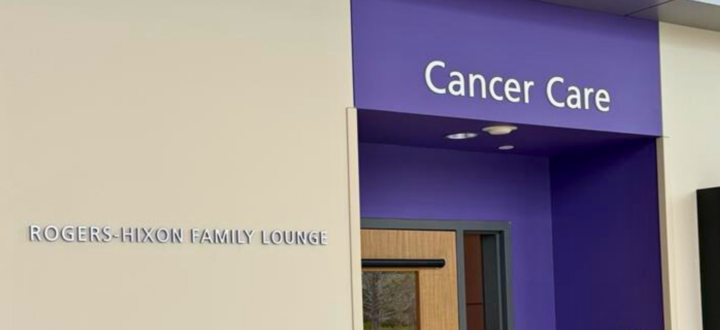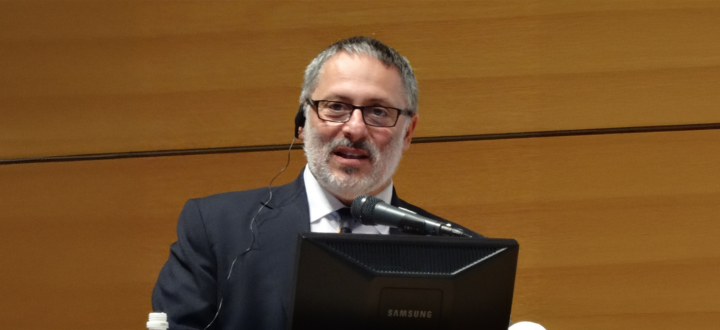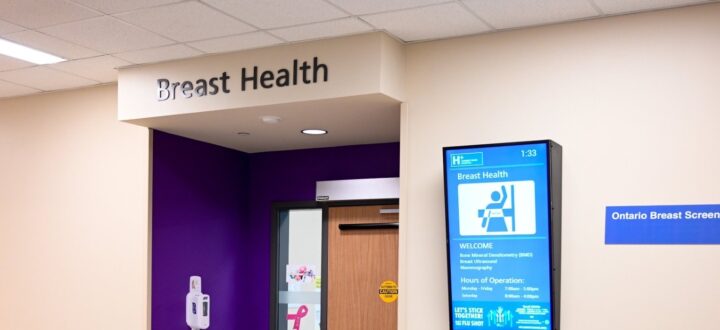Inside Humber River Hospital’s Revolutionary Lymphedema Program
Four years ago, Humber River Hospital plastic surgeon Dr. Thomas Constantine started Humber’s Lymphedema Program, applying state-of-the-art technology and his advanced training in supermicrosurgery to treat the disease.
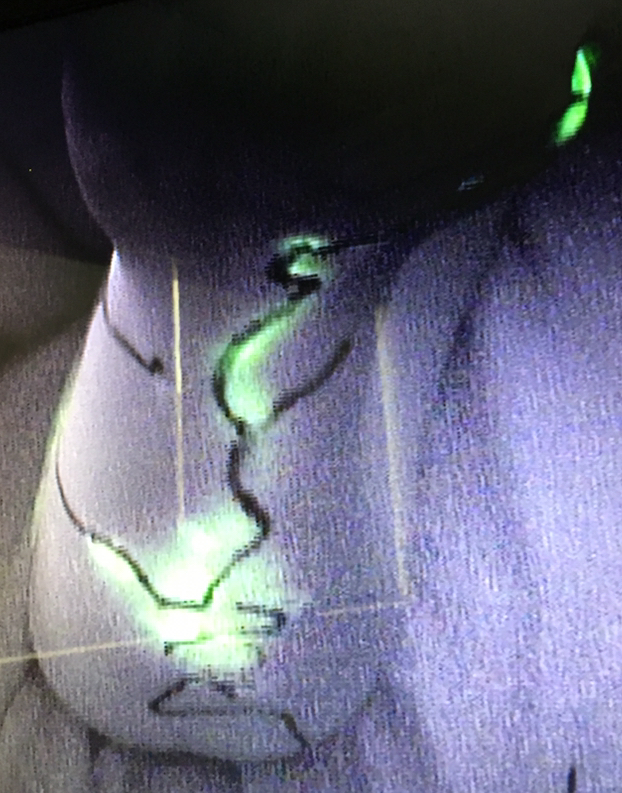
A lymphatic mapping using the advanced portable ICG technology available at Humber.
Since then, he has performed over 300 bypasses, which involves manually connecting a lymphatic (less than a fraction of a millimeter in diameter) to a vein.
The program has expanded to the point where Dr. Constantine is seeing patients in two clinics per week, the majority being former breast cancer patients who have developed lymphedema, as well as some lower limb lymphedema cases.
Chemotherapy, radiation, cancer surgery, and trauma can all play a role in damaging the lymphatic system, which can manifest with limb swelling and pain. Lymphedema can also occur from non-cancer causes.
“Unfortunately the patients who have higher risk factors for developing lymphedema are those who needed the most treatment for breast cancer,” says Dr. Constantine. “To go through all that and then to develop lymphedema is debilitating. It can be physically painful, affect numerous spheres of life, and can be emotionally isolating. So, it is great to be able to help these patients hopefully improve their symptoms and quality of life.”
To perform lymphedema surgery, Dr. Constantine uses specialized tools including a powerful microscope, special supermicrosurgical instruments, and ICG technology used for imaging. The ICG technology allows Dr. Constantine to further diagnose the extent of disease and its pattern, identify the relevant portions of the lymphatic system, and evaluate a potential surgical plan individualized to each patient – which is never the same twice.
His patients return for frequent follow-ups so that Dr. Constantine can assess their recovery is on track and that their lymphatics are healing as expected. He uses the ICG technology to track that progress.
“The mapping is essential to precise, minimally invasive surgery,” he says. “And sometimes I am able to perform further surgery, using new, healthier vessels, which I know are there thanks to the ICG mapping.”
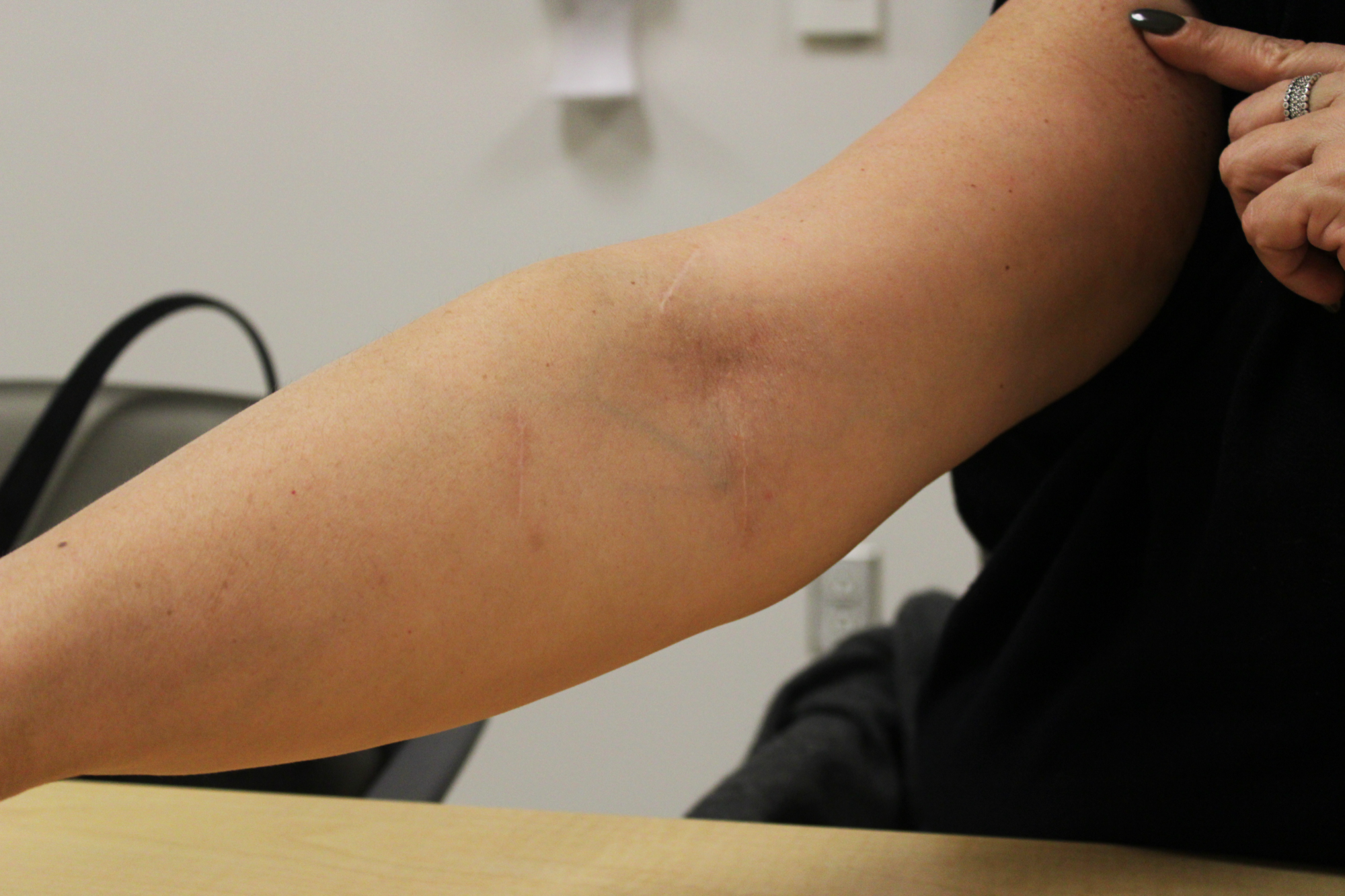
One of Dr. Constantine’s patients, Toni, developed lymphedema after radiation. “I tried physiotherapy, I tried compression sleeves, I tried everything but the swelling wouldn’t go away,” she says. “The swelling went down as soon as I healed from my surgery. I have six small incision marks and still wear my compression sleeve every day, but it has made such a huge difference.”
In the next few years, Dr. Constantine is hopeful that more Canadian cancer centres will have the expertise and the technology necessary to offer this surgery.
“Comprehensive breast cancer care should include lymphedema care and lymphatic surgery,” he says.
The Lymphedema Program at Humber River Hospital has expanded and has a waitlist, but Dr. Constantine doesn’t want that to deter people from seeking treatment.
“Surgery is not always the answer, but everyone should be aware of their options,” he says. “I am always amazed by the resiliency of cancer and lymphedema patients, and encourage people who need help to come see me in consultation to discuss.”
Our Thanks
The ICG Technology used at Humber River Hospital in breast reconstruction and in lymphedema surgery was made possible thanks to a generous donation from the Paul B. Helliwell Foundation. Thank you for helping reinvent patient care!
We first wrote about this revolutionary program in 2018. You can read that story here.



